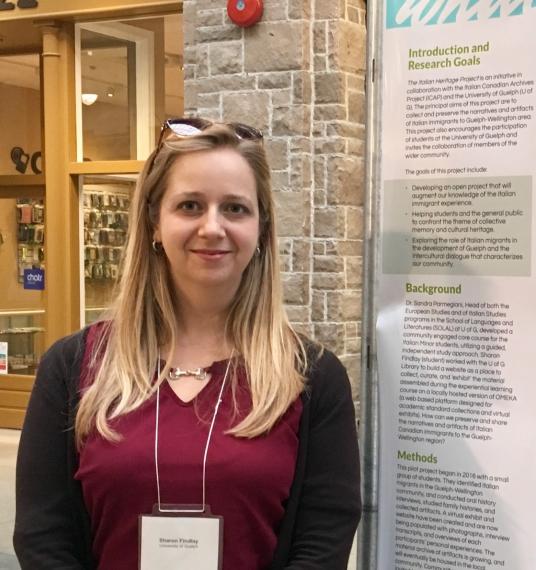Co-curricular Experiential Learning Categories and Criteria
Share this page
Co-curricular Experiential Learning are not-for-credit experiences that are offered through a variety of academic and non-academic departments at the University of Guelph. Below are the categories of co-curricular experiential learning at the University of Guelph. This listing includes definitions for each category, along with related examples of current opportunities at the University of Guelph.
Co-curricular Experiential Learning Categories
Certificates & Certifications
A structured program requiring the completion of set requirements and demonstration of specific competencies that promote skill development in an area of focus.
Community Engagement Programs
A program that engages students in exploring a societal issue or theme while supporting the mission of a community organization.
Conferences and Competitions
A short-term experience that allows students to showcase knowledge and skills by developing, planning, attending, or presenting an original work, at a conference, exhibition, or competition.
Entrepreneurship Programs
A program that allows students to leverage resources, space, mentorship and/or funding to engage in the early-stage development of a start-up and/or to advance ideas that address real-world needs.
Intercultural Engagement Programs
A university-sanctioned program that supports students in developing intercultural learning and competency.
Inter-university Athletics
Membership in an athletic team that represents the U of G in competitions with external athletes/teams. Students participate in regular training and activities related to the team and meet standards of performance.
Off-campus Employment
Paid work experience outside of a campus department or unit.
On-campus Employment
Paid work experience within a campus department or unit.
Paraprofessional Programs
A program embedded in service delivery that contributes to the campus community under the mentorship of faculty of professional staff.
Professional Development
Short-term activity designed to promote skill development in an area of focus.
Accredited Student Clubs & Organizations
Involvement in student-run organizations such as clubs, special status groups, service groups, affiliate groups that represent an area of interest, culture, hobbies and/or shared experience.
Student Government & Representation
A student elected or appointed to provide representation, advocacy, service, and/or programming to respective constituents.
Volunteer Programs
Engagement in an unpaid opportunity that contributes to furthering the goals of a community, program, or cause.
Co-curricular Experiential Learning Criteria
The following three (6) criteria must be met for a co-curricular experience to be recognizes on the U of G Professional and Career Development Record (PCDR).
- Experience is offered by or in affiliation with U of G and adheres to a mutually agreed upon letter of understanding with the EL Hub.
Affiliation can include:
A recognized student organization as defined in the University of Guelph’s Student Organization Policy (SOP),
An external partner with an affiliation agreement, memorandum of understanding, or other formal relationship agreement with U of G.
- Accurate participation records are available and experience completion is validated by faculty or staff of the University of Guelph.
Participation records means that the activity has the capacity to produce accurate lists of student participants that have completed all requirements of the experience for a given academic year. Any list would require at least one unique U of G identifier (e-mail address or student ID).
Staff can include graduate students and senior undergraduate students in paid leadership positions.
- Experience is clearly structured with learning outcomes designed to strengthen transferable skills, career competencies, and/or citizenship—all of which supports transition to the workforce.
Clearly structured means the experience includes: (a) learning outcomes that are constructively aligned with common employability knowledge, skills, and attitudes (KSAs), and (b) active supervision/mentorship where students are provided with intentional guidance and support in achieving the learning outcomes of the experience.
- Students complete self-assessment or reflection activities on the development of their knowledge, skills, and attitudes (KSAs).
- Experience takes place in a real or simulated workplace that reflects authentic work demands.
Real or simulated workplace means an environment that models or emulates a workplace in function, equipment, or operation, wherein a student engages in activities reflecting real work experience.
Authentic work demands are defined as work contexts, processes, or practical experiences, with real-world application.
- Students receive feedback on their performance and learning outcomes from U of G staff or faculty, or an external supervisor such as an employer or community partner.
Download the Co-Curricular Experiential Learning PCDR Inclusion Criteria in PDF format.
Reviewed by the Experiential Learning Advisory Committee (ELAC) - March 29, 2021
For information about this document contact experience@uoguelph.ca
